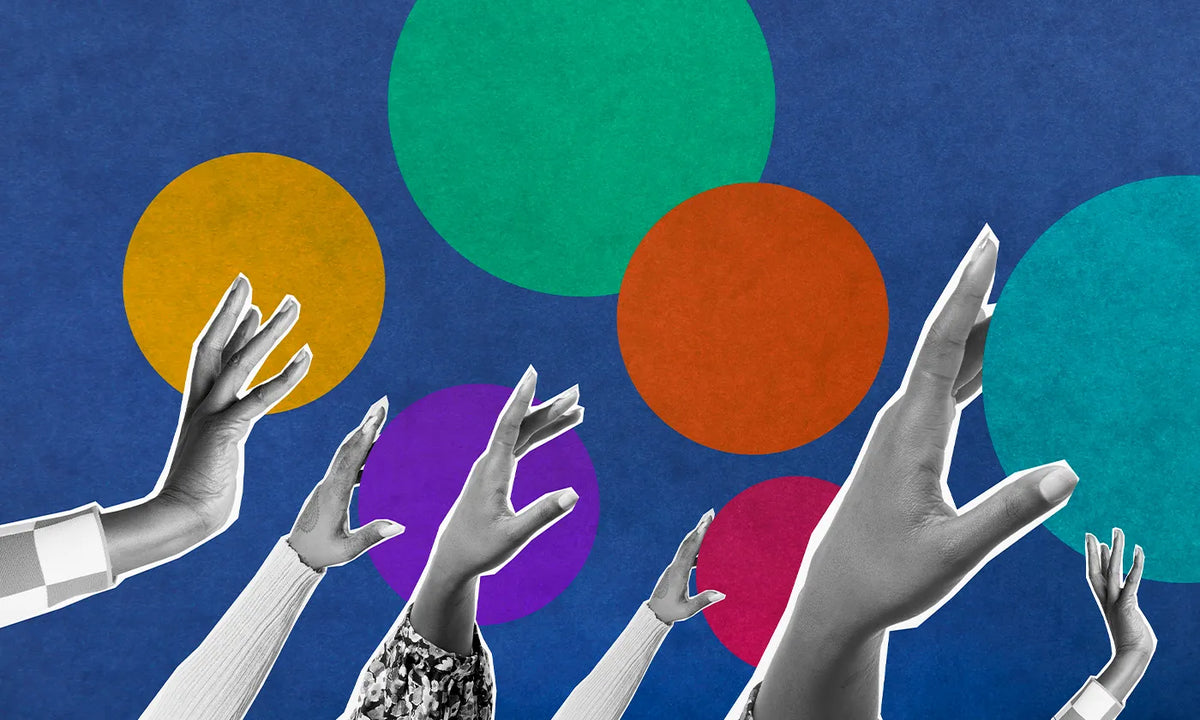Mental health conversations often skip over the ways systemic racism, generational trauma, and cultural stigma shape our experiences. We’re often told to be strong. To hustle through the pain. To stay quiet and stay grateful. But the silence weighs heavy.
Here’s the truth in numbers:
-
Only 33% of Black adults who need mental health care actually receive it. (Source: NAMI)
-
Asian Americans are three times less likely than white Americans to seek mental health services. (Source: MHA)
-
Nearly 1 in 3 Indigenous people live in poverty—a major barrier to accessing consistent, culturally competent mental health care. (Source: Urban Indian Health Institute)
Mental health challenges don’t discriminate but access, stigma, and support do.
Why It’s Hard to Ask for Help: The Barriers We Don’t Always Talk About
Mental health isn’t just about access. It’s also about fear, safety, and how we were raised to cope.
For many BIPOC communities, seeking help isn’t just difficult, it’s layered with generations of silence, survival, and shame. We weren’t always taught that being unwell was something we could name, let alone treat.
Here are a few very real barriers many of us face:
“Just Pray About It” Culture
In a lot of homes, mental health conversations start and end with faith. And while spirituality can be a powerful form of healing, it’s not a replacement for therapy or diagnosis.
But for many, saying “I’m depressed” feels like saying “I don’t believe in God.” That stigma can be confusing.
Fear of Being Judged or “Othered”
From being seen as “too emotional” to “too angry,” there’s a fear that even in therapy, we’ll be misunderstood or stereotyped.
Over 50% of BIPOC individuals who received mental health services said their provider lacked cultural understanding. (Source: APA)
Generational Silence
Many of us were raised by people who couldn’t name what they were feeling. So we learned to survive instead of heal.
“You’re too sensitive.”
“We don’t talk about that here.”
“Stop crying before I give you something to cry about.”
These phrases aren’t just words, they're inherited wounds.
Cost, Access & Trust Issues
Even today, BIPOC individuals are less likely to have insurance, face longer waitlists, and often don’t feel safe navigating healthcare systems that haven’t always protected us.
Community-Based Healing Is Still Valid
Not everyone finds peace in a therapist’s office, and that’s okay. Healing can look like:
-
Deep convos with your cousins on FaceTime or over drinks.
-
Moving your body to music that feels like freedom. Dance when you got out.
-
Sitting with your elders, absorbing their stories, struggles, and triumph.
-
Praying, meditating, or even burning something (incense, sage, a journal entry...)
For many of us, community is the first therapist we’ve ever known. And while we deserve professional care, we also deserve to honor our cultural ways of healing. That is wellness, too.
Everyday Self-Care That Feeds the Soul
You don’t have to book a retreat to take care of yourself (although we’d never judge). Here are some ways to protect your peace today:
-
Say no without giving an explanation
-
Wear your bonnet, your hoodie, your grill, your afro, your braids without guilt or feelings of insecurity.
-
Curate your social feed like your life depends on it (because sometimes it does). Follow @notabadlifeee for daily mood boosters.
-
Talk to your ancestors, your inner child, or your highest self. This could look like prayer or journaling.Spend time doing nothing and let that be enough.
-
Spend time doing nothing and let that be enough.
Self-care for us is about survival. It’s about taking back time, energy, and softness in a world that doesn’t always offer it.
🎨 Creativity Is Therapy, Too
Writing, coloring, designing, even making playlists are all valid forms of healing. Creative expression helps us feel, release, and reclaim.
That’s why Not A Bad Life offers things like affirmation stickers, coloring pages, and apparel that feel like little acts of protest wrapped in self-love. Because when we say “Hug Your Homies,” we mean it.
📚 Listen, Learn & Feel: BIPOC Voices We Love
Sometimes self-care looks like learning from people who get it. Whether you're looking to be affirmed, inspired, or simply held, here are some books, podcasts, and Instagram handles by BIPOC creators doing powerful work in mental health, creativity, and healing.
📖 Books to Read by BIPOC Authors:
-
Stay In My Window by LaTonya Yvette
-
Five Little Indians by Michelle Good
-
That Time I Loved You by Carianne Leung
-
Memphis by Tara M. Stringfellow
🎧 Podcasts That Center BIPOC Mental Health:
Rest Is Not Laziness, It’s Legacy
To the ones who keep showing up even when you're tired. we see you.
To the ones who choose softness instead of struggle, we feel you.
To the ones learning that being okay isn’t the same as being well, we’re with you.
You don’t have to do it all.
You don’t have to hold it all.
And you sure as hell don’t have to heal alone.
Comments

Leave a Comment close
Leave a Comment